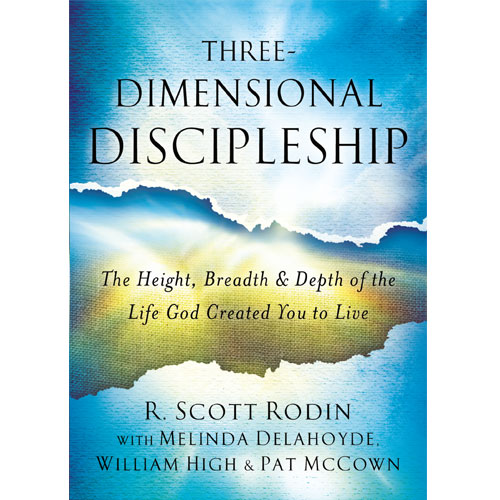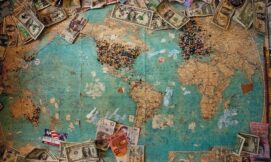What Fourteen Days with Five Palestinians Taught Me About Reconciliation
How are you ministering reconciliation?

This is my third blog post reflecting on our call to be engaged in the ministry of reconciliation. I’ve written about my reluctance, my penchant for avoiding vulnerability, and my comfort in, well, my comfort zone. Overcoming these will take time, baby steps perhaps, but steps nonetheless.
I’ve also written on how our journey as stewards equips us for this hard but essential work. We step into reconciliation on the legs of freedom and joy, surrender and obedience. In this way, to be a faithful steward is to be engaged in the ministry of reconciliation. The two are inseparable.
I pray these reflections have been helpful, even challenging. But it leaves us still needing to act, to see how this intersection of reconciliation and the faithful steward is lived out in real time with real people in real situations.
Well, I had that opportunity in spades recently. My wife, Linda and I had the privilege of hosting a Palestinian family in our home for the past two weeks. The five from Bethlehem were our guests for the celebration of their daughter’s graduation from Whitworth University. We were certainly acquainted with them, having been guests in their home and claiming their daughter as our own. But this was the first visit to the US for the father and two sons, aged 15 and 20.
Having said goodbye to them at the airport earlier today Linda and I reflected on our two weeks together as we drove home. My thoughts went to this series on reconciliation and what we learned living with and listening to these wonderful friends with whom we were united in Christ, yet so significantly separated by culture and politics. Here are three thoughts.
First, I was heartened that we were able to connect as brothers and sisters in Christ in a way that transcended the geo-political affiliations that could have separated us. They did not see us as a representation of a government that supports Israel who they experience as an oppressor. And we did not associate them with the jihadist policies of a wing of the Palestinian state. We were Americans and they were Palestinians, and somehow both identifiers were modified by the things that united us such as family, faith and the love of creation. I wonder if reconciliation would be more attainable if we dealt with each other as individuals and not representatives of a group, if we started by acknowledging all that we have in common on a personal basis with those we might believe to be our enemies?
At the same time, I believe we were able to celebrate each other’s cultural uniqueness. They relished climbing in the snow, eating barbeque ribs and watching baseball. We enjoyed an authentic Palestinian breakfast, talked at length about life at home and sat with them through a European soccer match. They embraced us and much of our culture and we relished in stories of our time with them and life in the West Bank. There was no sense of soft-selling identity or apologizing for the deep differences that marked so much of our two worlds. We loved them as Palestinians and I believe they loved us as Americans. I wonder how I can extend this recognition of uniqueness to those with whom I disagree?
Finally, we seemed to be able to have dialogue without defensiveness. Perhaps because of the recognition of what united us, we listened without judging and saw life through each other’s eyes, at least as much as time afforded. Having been to their house twice and spent time in their culture, I think the lack of defensiveness was genuine on both sides. While we talked sparingly about politics, it was clear that we could have talked more in the safe space that was created. I wonder if I can create such safe spaces in more of my conversations, and if that might help mitigate some of the vitriol of our current culture?
These are my reflections on these past two weeks seen through the lens of a growing conviction to be involved in the ministry of reconciliation. These are still baby steps for me, but as I said, they are steps nonetheless.
How is God working in your life to steward every opportunity to be a minister of reconciliation?





